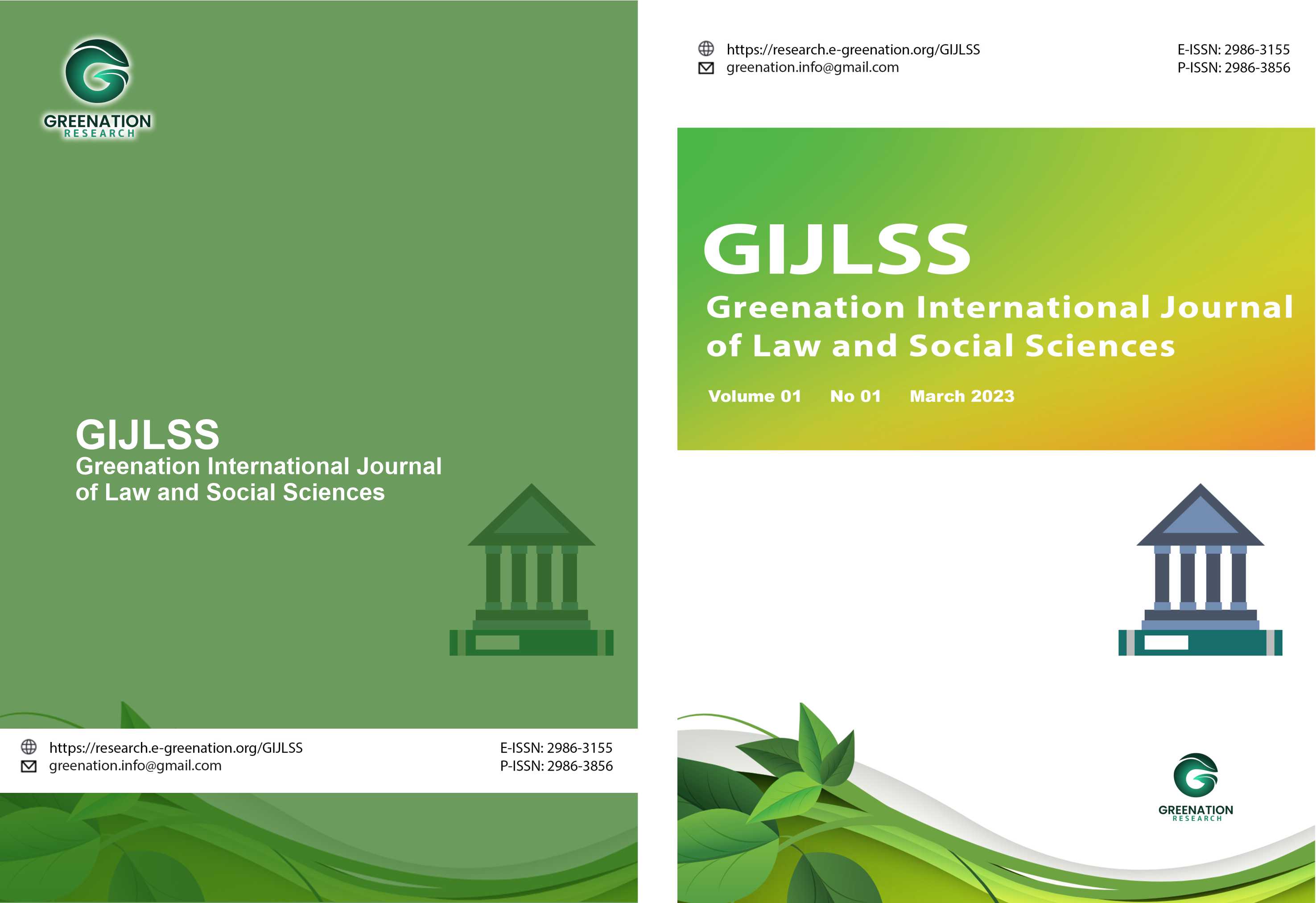Juridical Analysis Of Final Review Review (Pk) Of Criminal Corruption Cases By The Head Of Personnel Body Formation In Pagar Alam City
DOI:
https://doi.org/10.38035/gijlss.v2i1.151Keywords:
Corruption, abuse of authority, pagar alam cityAbstract
This research is to find out the Legal Considerations of the Panel of Judges in imposing a criminal verdict on corruption committed by the Head of Formation of the Civil Service Agency in using his position in Pagar Alam City (Case study of Cassation Decision No. 2697 K/Pid.sus/2016, with PK No. 163/Pid.sus/2019). Where the regulations regarding the eradication of corruption are listed in Law No.20 of 2001 which has been revised in several articles. The formulation of the problem in this study How is the verdict of the panel of Judges at the Cassation level in the Supreme Court of the Republic of Indonesia with Number 2697 K / PID.SUS / 2016, against the perpetrators of abuse of authority due to acts of Corruption related to the appointment of honorer to CPNS, and how is the verdict of the Supreme Court Judges at the level of Reconsideration against the perpetrators of the crime of participation (article 55 of the Criminal Code) as the head official of the personnel formation field of Pagar Alam City with decision number: 163 PK/Pid.sus/2019. This research is a qualitative normative juridical research which is then presented descriptively by describing the problem and drawing conclusions to determine the results. The result of the research obtained is that the judge's consideration at the cassation level is not in accordance with the applicable law because the perpetrator is an official in a government office who abuses his authority so that it is appropriate for the decision of the supreme court judge at the cassation level to impose a sentence in accordance with the applicable law.
References
Abdullah, "Hukum Kepegawaian Indonesia", Rangkang Education Yogyakarta & PuKap- Indonesia, 2012, hlm.2
Abdulkadir Muhammad. "Hukum dan Penelitian Hukum. Cet. 1". Bandung: PT. Citra Aditya Bakti. 2004, Hlm 52,
Adami Chazawi, "Pelajaran Hukum Pidana Bagian I", RajaGrafindo Persada, Jakarta,2014, hlm. 67,
Dellyna,Shant, "Konsep Penegakan Hukum". Yogyakarta : Liberty1988, Hal 34
Djoko Sumaryanto, "Pembalikan Pembebanan Tindak Pidana Korupsi dalam rangka pengembalian Kerugian Keuangan Negara", Jakrta, PT. Prestasi Pustakarya,2009, Hlm110
Ermansjah Djaja, 2010, "Memberantas Korupsi Bersama KPK (Komisi Pemberantasan Korupsi)",Sinar Grafika, Jakarta hlm. 13.
Firman Wijaya, "Delik Penyalahgunaan Jabatan dan Suap dalam Praktek", Penaku
Idhamsyah, "Pelaksaan Hukum Dalam Masyaraka", Terdapat di situs "https://idhmsyah12.wordpress.com/"Pelaksanaan hukum-dalam-Masyarakat/. Skripsi . Universitas Pancasila Th 2018 Survei Transparency International "terdapat pada situs https://ti.or.id/perpustakaan/
Kimberly Ann Eliot. "Korupsi dan Ekonomi Dunia" Yayasan Obor: Indonesia, Jakarta hlm 1-2
Nandang Alamsah D dan Sigit Suseno, "Modul 1 Pengertian dan Ruang Lingkup Tindak Pidana Khusus", hlm. 7
UU No. 20 Tahun 2001 tentang perubahan atas UU No. 31 Tahun 1999 tentang Pemberantasan Tindak Pidana Korupsi.
Downloads
Published
How to Cite
Issue
Section
License
Copyright (c) 2024 Dwi Putri Rhamadani, Tardip Panggabean, Eni Jaya

This work is licensed under a Creative Commons Attribution 4.0 International License.
Copyright :
Authors who publish their manuscripts in this journal agree to the following conditions:
- Copyright in each article belongs to the author.
- The author acknowledges that the Greenation International Journal of Law and Social Sciences (GIJLSS) has the right to be the first to publish under a Creative Commons Attribution 4.0 International license (Attribution 4.0 International CC BY 4.0).
- Authors can submit articles separately, arrange the non-exclusive distribution of manuscripts that have been published in this journal to other versions (for example, sent to the author's institutional repository, publication in a book, etc.), by acknowledging that the manuscript has been published for the first time at GIJLSS.
























